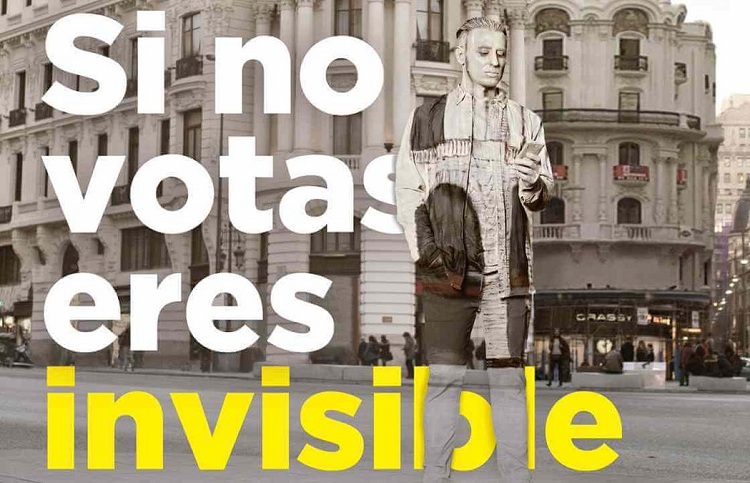The Diplomat
A clear majority of European citizens are interested in the next European elections, which will take place in a year’s time. This trend is clearly higher in Spain, where the willingness to participate in the polls has increased by nine points since 2018.
According to the European Parliament’s Spring Eurobarometer, made public yesterday, the interest of European citizens in these elections “has increased considerably” a year ahead of the polls. A clear majority (56% on average) has shown interest in participating in this appointment with the polls, which represents six points more than in 2018, a year before the last European elections.
In the case of Spain, 65% of respondents say they are likely to vote in the elections, which will take place between June 6 and 9, 2024, while in 2018, one year before the 2019 European elections, this percentage was 56%.
As an example of this greater predisposition, the study – conducted by means of more than 26,000 interviews in the twenty-seven Member States of the Union between March 2 and 26 – also indicates that almost two-thirds of the people surveyed (67%) would probably vote if the European elections were held in a week’s time. In the April 2018 Eurobarometer, this figure stood at 58%.
According to the President of the European Parliament, Roberta Metsola, this survey reveals that “elections matter” because “voting is the opportunity for citizens to have their say on the issues that matter to them.” “I call on everyone, especially young people, to go to the polls and contribute to designing the European Union they want to live in,” she added.
On the other hand, 37% of respondents believe that defending democracy is the most important job of the European Parliament. This is followed by the protection of human rights in the EU and worldwide (28%) and freedom of expression and conscience (27%). In addition, 54% of those surveyed consider the functioning of democracy in the EU to be satisfactory.
In the case of Spain, 50% of those surveyed applaud the functioning of democracy in the EU. 69% of Spaniards are satisfied with free and fair elections, 68% with the state of freedom of expression in the EU and 64% with respect for fundamental rights. In contrast, only 28% are satisfied with the fight against corruption and 34% with the way political parties serve the interests of the people.
Regarding the EU’s leadership in the fight against the successive crises that have marked this period, 71% of respondents are aware of the impact that the EU has on their daily lives and 62% of the importance of the role of the European Parliament. In the case of Spain, 64% of respondents recognize the impact of the European Union on their daily lives and 59% admit that they have read about the European Union and the Parliament in the press, on the Internet, on television or on the radio.
EU support for Ukraine enjoys the highest citizen approval rating (69%). The highest levels are recorded in the Netherlands (90%), Sweden (87%), Finland (87%) and Ireland (87%) and the lowest in Slovakia (45%) and Greece (48%). In Spain, the approval rate for the support offered by the European Union to Ukraine is 72%, somewhat higher than the European average. In fact, it is the area of action with the highest level of approval in Spain, above democratic rights and respect for the rule of law (61%) and the Digital Agenda (53%). In this case, the worst marks go to economic and social recovery (49%) and the Green Pact (49%).
Regarding the consequences of the multiple crises of recent years on the standard of living of citizens, nearly two thirds (65%) of respondents across the EU are not satisfied with the measures taken by their country to deal with the rising cost of living, while 57% consider the EU’s action to alleviate the situation to be insufficient. In Spain, the results are clearly more pro-European, as 77% consider that the measures adopted by their government are not sufficient, while only a quarter of the population has the same opinion about the measures adopted by the EU.







